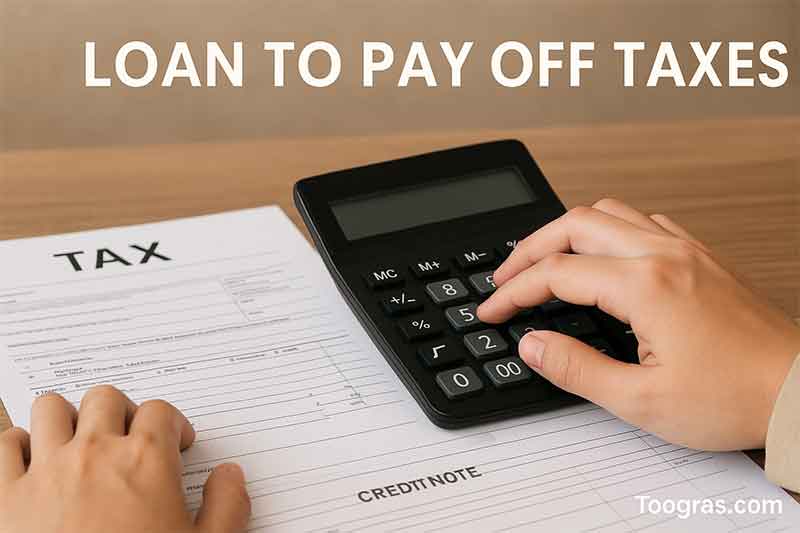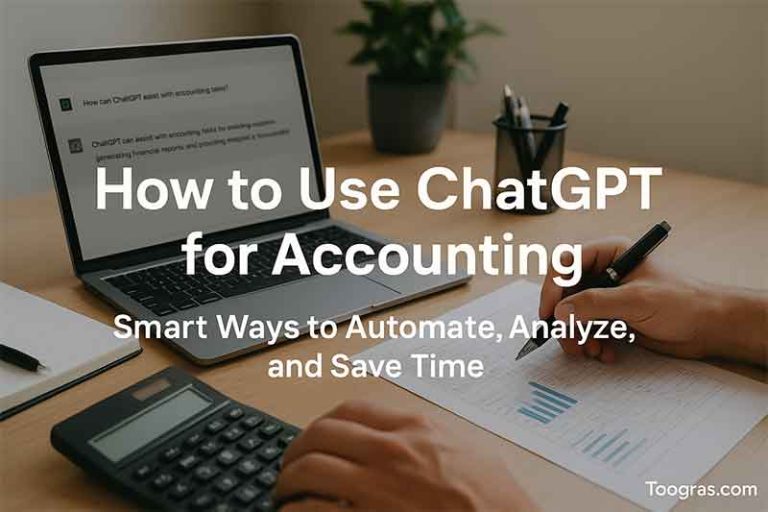Loan to Pay Off Taxes: Smart Ways to Handle Tax Debt Without Stress
Loan to Pay Off Taxes: Smart Ways to Handle Tax Debt Without Stress – You open a letter from the IRS or your local tax authority — and your stomach drops. The amount due is way more than you expected. Maybe you didn’t set aside enough money for self-employment taxes. Or maybe a sudden life change threw off your finances.
Either way, one question hits fast: “Should I get a loan to pay off taxes?”
The good news is, you’re not alone — and yes, using a loan to pay taxes can actually be a smart move in certain cases. The key is understanding how to do it safely and which loan option fits your situation best.
In this guide, we’ll break it down in plain English. You’ll learn how tax loans work, when they make sense, what to avoid, and practical tips to keep your finances steady — even when the IRS comes knocking.
Why People Use a Loan to Pay Off Taxes
Let’s be honest — paying taxes is rarely fun. But when you can’t afford the full bill, things can get stressful fast. Interest, penalties, and even wage garnishment can follow if you delay too long.
Here are a few reasons people turn to loans:
1. Avoid IRS Penalties and Interest
If you miss your tax deadline, the IRS immediately starts charging interest and penalties. Over time, that small unpaid balance can grow fast. A loan with a lower interest rate may save you money in the long run.
2. Prevent Tax Liens or Wage Garnishment
Unpaid taxes can lead to serious consequences — like a tax lien on your property or the IRS garnishing your paycheck. Taking out a personal loan to pay off the balance can help you avoid that mess entirely.
3. Simplify Payments
Instead of juggling multiple IRS notices or repayment plans, a loan gives you one predictable monthly payment. You deal with your lender — not the IRS.
4. Peace of Mind
Knowing you’ve handled your tax bill removes a huge weight from your shoulders. You can focus on rebuilding your finances rather than stressing about tax deadlines.
When a Loan Makes Sense — and When It Doesn’t
A loan isn’t the best choice for everyone. It depends on your credit, debt level, and repayment ability. Let’s look at both sides:
When It Makes Sense:
- You have good credit and can get a low interest rate.
- You can pay off the loan within a reasonable time (12–36 months).
- The loan interest is lower than IRS penalties (which can reach 8%–10% or more).
- You want to keep your credit report clean and avoid collection activity.
When to Avoid It:
- You already have high-interest debt or credit card balances.
- You’re uncertain you can make the monthly payments.
- You qualify for an IRS payment plan that’s cheaper or safer.
Types of Loans You Can Use to Pay Taxes
Not all loans are equal. Here are the most common options for paying off tax debt — with pros and cons for each.
1. Personal Loan
A personal loan is one of the most common choices. It’s unsecured, meaning you don’t need to put up your home or car as collateral.
Pros:
- Fast approval (often within 24–48 hours).
- Fixed interest rate and term.
- One lump sum to pay your full tax bill.
Cons:
- Requires good credit for the best rates.
- Can add another monthly payment to your budget.
If your credit is decent, you can find personal loans with rates between 7% and 15%, which might still beat IRS interest charges.
You can read more about how payment plans work with other expenses here: Do Dealerships Do Payment Plans for Repairs?
2. Home Equity Loan or HELOC
If you’re a homeowner, you could tap into your home’s equity.
Pros:
- Lower interest rates (because it’s secured by your home).
- Larger borrowing limits.
Cons:
- Risk of losing your home if you can’t repay.
- Slower approval process.
A home equity line of credit (HELOC) gives more flexibility if you don’t need all the funds at once, but remember: using your home as collateral is serious business.
3. Credit Card Balance Transfer
This one might sound odd, but if you qualify for a 0% APR balance transfer, it could work — temporarily.
Pros:
- Pay no interest during the promo period (usually 12–18 months).
- Quick way to clear your tax bill.
Cons:
- High interest if you don’t pay it off before the promo ends.
- Transfer fees (often 3–5%).
This can be useful for smaller tax debts (under $5,000), but only if you’re sure you’ll clear the balance fast.
4. IRS Payment Plan
Here’s something many people overlook — you can often set up a payment plan directly with the IRS.
Pros:
- Easier approval.
- No credit check.
- Avoids third-party lenders.
Cons:
- Still includes penalties and interest.
- Can last for several years.
For smaller debts (under $10,000), this might be your best bet. But for larger balances, a private loan with lower interest could save more money.
How to Apply for a Loan to Pay Off Taxes
Getting a loan isn’t as complicated as it sounds. Here’s how to go about it smartly:
1. Check Your Credit Score
Your score determines the rates you’ll get. You can check it for free on most banking apps.
2. Compare Lenders
Use trusted comparison tools or go directly to your bank or credit union. Look at APRs, fees, and repayment terms.
3. Calculate Your Loan Amount
Only borrow what you need to cover your tax bill — don’t overborrow.
4. Apply and Get Funded
Once approved, use the funds immediately to pay your tax balance. Always confirm payment with the IRS or your state tax agency.
5. Set Up Automatic Payments
Avoid missing payments by automating them. Late fees from lenders can hurt your credit score.
Example: Why a Loan Might Be Cheaper
Let’s say you owe $10,000 in taxes.
If you leave it unpaid, the IRS could charge around 8% interest plus penalties — that’s roughly $800+ per year.
If you take a personal loan at 10% APR for two years, you’ll pay about $1,100 in interest total — but no penalties, no IRS collections, and your credit stays clean.
It’s not always the cheapest route, but it gives peace of mind and financial control.
Smart Tips Before You Take Out a Tax Loan
- Compare loan rates to IRS rates — sometimes the IRS plan is better.
- Avoid payday loans or high-interest cash advances.
- Don’t ignore your tax debt — penalties grow fast.
- Ask your lender about early payoff options to save on interest.
- Create a repayment plan that fits your budget comfortably.
Alternatives to Using a Loan
If a loan doesn’t fit your situation, here are a few alternatives:
1. IRS Payment Plan (Installment Agreement)
Apply directly on the IRS website. It’s often the simplest solution if your debt is under $50,000.
2. Offer in Compromise
If you truly can’t afford to pay, the IRS might accept less than what you owe. This is rare, but possible in cases of financial hardship.
3. Delay Collection (Currently Not Collectible Status)
If you can prove you can’t pay basic living expenses, the IRS can pause collections. Interest will still accrue, but you’ll get breathing room.
4. Borrow from Retirement (Last Resort)
Tapping into a 401(k) or IRA might cover your taxes, but you’ll owe penalties if under 59½. Only consider this if no other options work.
Long-Term Strategy: Avoid Tax Debt in the Future
Taking out a loan should be a one-time fix, not a yearly habit. Here’s how to stay ahead of taxes:
- Set aside 25–30% of income if you’re self-employed.
- Adjust your withholdings if you got a surprise tax bill this year.
- Use accounting tools or software to track expenses — or check this helpful guide on How to Use ChatGPT for Accounting.
- Plan ahead for next year’s taxes. Treat taxes as a monthly bill, not a one-time shock.
Conclusion: Handle Tax Debt the Smart Way
A loan to pay off taxes can be a smart solution — when used correctly. It can stop penalties, protect your credit, and give you peace of mind.
But like any financial decision, it’s about balance. Weigh your loan options, compare rates, and never borrow more than you need.
If your tax debt feels overwhelming, remember: you have choices. Take a deep breath, explore your options, and make a plan that keeps your finances (and sanity) intact.
FAQs About Using a Loan to Pay Off Taxes
1. Can I use a personal loan to pay federal taxes?
Yes. You can take out a personal loan and use the funds to pay your federal or state taxes directly.
2. Does the IRS allow paying taxes with borrowed money?
Absolutely. The IRS doesn’t care where the money comes from, as long as your taxes are paid on time.
3. Is a tax loan better than an IRS payment plan?
It depends on the interest rate. If your loan’s APR is lower than the IRS penalty rate, the loan is usually cheaper.
4. Can I get a tax loan with bad credit?
It’s harder, but not impossible. Some lenders specialize in bad credit personal loans — though rates will be higher.
5. Should I use a credit card instead of a loan?
Only if you qualify for a 0% APR card and can pay it off before the promo period ends. Otherwise, interest rates on cards can exceed 25%.
External sources for credibility:
Disclaimer: This article provides general information and should not be considered as financial or tax advice. Please consult with a qualified professional for personalized recommendations.







